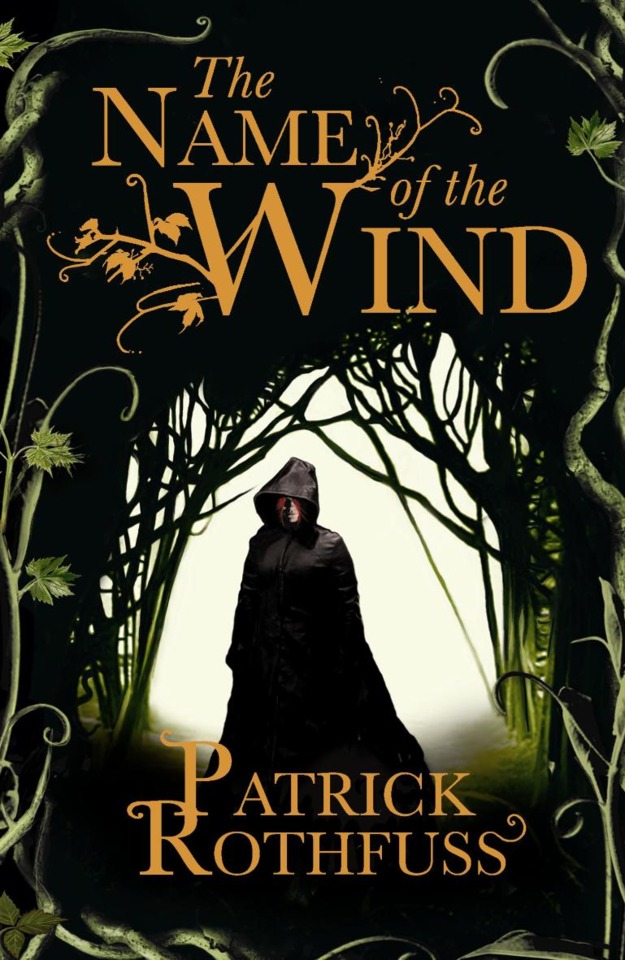The Kingkiller Chronicles: reflections
By sweep 8 Comments
When I first discovered The Name Of The Wind, back in the early days of 2011, it was everything I wanted from a novel. My knowledge of fantasy writing was limited almost exclusively to classics like Lord Of The Rings, or Dune, or Game Of Thrones. In fact the majority of my fantasy library was predominantly sci-fi, and I placed the high-fantasy genre in the same sub-folder as World Of Warcraft fan fiction. I came to learn pretty quickly that this was a hugely unfair dismissal, and have since endeavoured to correct those unprovoked misconceptions. It's been a few years, and I think I'm doing OK.
I loved The Name Of The Wind.
Patrick Rothfuss has a way with words that borders on poetic without veering into pretentious. The cultivation of the world that he created in his book was hugely satisfying to digest - a rich and well thought out series of social systems and hierarchies that are aptly explained and put to work without the drudgery of overbearing exposition. Rothfuss wallows in melodrama on occasion, though by in large the book is endearingly witty, garrulous and dark. I finished The Name Of The Wind in the space of a few days, neglecting both responsibilities and sleep in order to do so. A few weeks later The Wise Man's Fear arrived, my pre-order landing on my desk on the day of it's release, and my productivity once again dipped as I worked my way through.
I've always read a lot, ever since I was a kid. With my favourite books I would, and still do, read them repeatedly almost until I could recall huge portions of each at will. I remember trying to explain to my parents that I didn't get bored of reading the same book more than once, or watching the same film more than once. If anything I enjoyed having the entire sequence of events lined out in front of me, then being able to dip in and read my favourite chapters almost as individual short stories, filling in any gaps from memory. This always made my Dad a little uncomfortable, and he would push me to try new books instead of obsessing over one's I'd already read. It was never really a problem though. I read everything, both old and new. I was, like I'm sure many of you were, a pretty weird kid.

Both The Name Of The Wind and The Wise Man's Fear have since been committed to memory, stashed away in the weird little library I have in my head. They are both books that are familiar and easy to read. Or at least, they were. I have drifted through each one maybe a dozen times at this point, and with each repetition I find myself less and less comfortable in their company.
I'm going to work around the assumption that those of you reading this are familiar with the work in question, because otherwise this is going to get pretty spoilery. Heads up.
I remember being amazed when Patrick Rothfuss revealed he had never possessed any musical ability. The way he writes about music, the way he captures so passionately and intricately what it feels to dedicate yourself to an instrument is hugely relatable and impressively nuanced. It's a huge shame then, that this knack doesn't extend to his understanding of relationships between men and women.
One gets the firm impression that Rothfuss is projecting his own sexual frustration and inexperience, the pages reflecting his own social awkwardness, while simultaneously attempting to live vicariously through his protagonist. This is made abundantly apparent as Kvothe, the lead, seems to absent-mindedly attract the attention of every female he crosses paths with (All of which happen to be stunningly beautiful and clever, incidentally) except the one he truly desires, at whom he fumbles awkwardly and is terrified of approaching, content to stalk her across the map and glare enviously at the many men she actually seduces. There's a word for that. It's called being friendzoned. It's not a nice word, but one can't help but feel that for Rothfuss, it's deeply familiar.
One could argue that this is fairly standard behaviour for an inexperienced boy of 15, but this clashes horribly with the maturity he is otherwise supposed to possess. With the knowledge of every play ever written stuffed into his head, by way of explanation, Kvothe is supposedly the sharpest and most intelligent student to ever reach the Arcanum, and has the ability to talk his way into or out of every social situation as he sees fit. He's also been trained to be a master sexpert by a mystical fairy woman, and then sent back to earth to overwhelm the entire female population with his magical penis. Did we mention that he also knows karate? And he's a wizard? The character development of the protagonist often feels as though a child is throwing every power fantasy onto a single character. It's immature, and exhausting. While I admire Rothfuss' general style of writing, the impression I've ultimately walked away with is that he's trying to sporadically force every Fallout Perk onto his character and hope nobody notices.
As an aside, it's pretty fucking ridiculous that Kvothe is so easily angered by any suggestion that the Ruh are thieves and criminals, while simultaneously stealing everything that isn't nailed down.
I'm slightly torn at this point, because I don't know if it's actually Rothfuss I dislike, or if he's deliberately designed his character to be a smug little prick. In that regard he's either a very gifted writer, or an exceedingly poor one.
Hit me up if you felt otherwise. Would be interested to know if I'm alone in thinking this way or if others deeply dislike the arrogant little shit that stars in this book.
